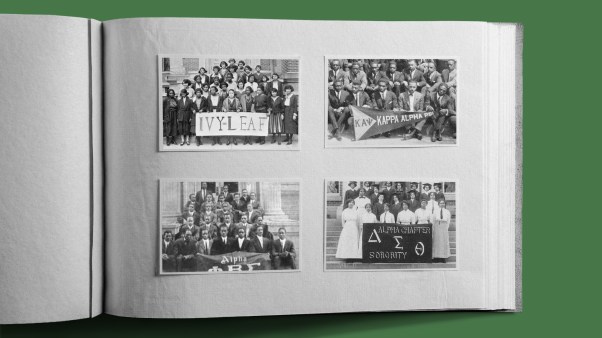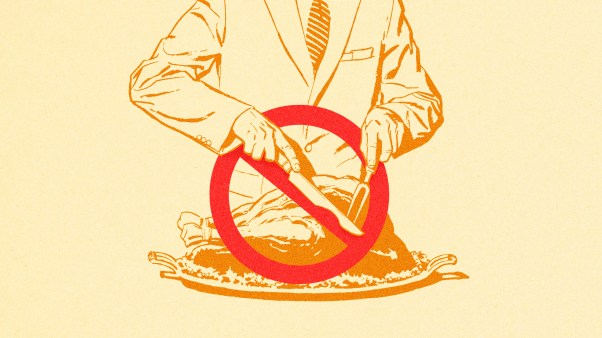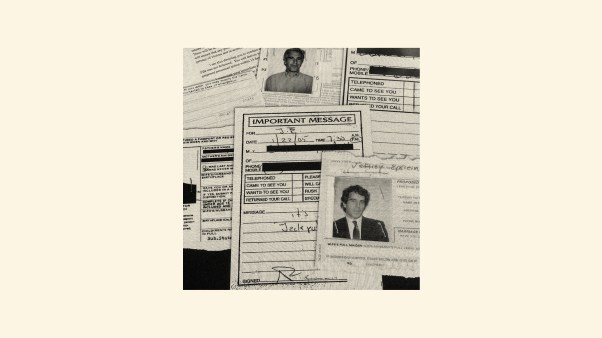Harvard graduate and Rhodes scholar Jonathan Kozol moved to a poor black Boston neighborhood in 1964 and became a fourth-grade teacher. Three years later he wrote Death at an Early Age, which chronicled his first year in the classroom. The poignant volume won a National Book Award. He has written nine more books since then. In his newest, Ordinary Resurrections: Children in the Years of Hope (Crown, 400 pp., $25), Kozol introduces readers to an after-school program at St. Ann’s of Morrisania, an Episcopal church in the South Bronx. As he did in 1995’s Amazing Grace, Kozol exposes the horrific conditions of America’s inner-city public schools and reminds readers that behind the political debates about public education are tenacious and loving children.
Who are these children that you’ve written about?
The children in Ordinary Resurrections go to public elementary school in the South Bronx. These are some of the poorest children in America, living under conditions of grossly inferior health care and savagely unequal education. Seventy-five percent of men in their part of the South Bronx are unemployed. Many of the families have a yearly income of $10,000.
The high school into which most of the kids are tracked held, as of 1999, about 2,000 students in four grades. Ninety of them made it to 12th grade, and 65 graduated. Far more children from that high school will end up in prison than in college.
The same elementary-school children go after school to St. Ann’s& amp;mdash;a small Episcopal church, extremely poor, run by one of the most astonishing preachers I’ve ever met. Mother Martha was a high-powered corporate lawyer who gave it up in the ’80s to become a priest. She has created a remarkable after-school program for children& amp;mdash;about 80 children come to the church every day for intensive tutoring, supper, and prayer.
Ordinary Resurrections tackles religion head-on in a way that your earlier books do not.
I did not intend to write a religious book, but people tell me this is one of the most religious books they’ve ever read. That pleases me, because I came to this as an outsider. I’m Jewish. These are Christian children, devoutly Christian children.
Like many overeducated people, I have tended for many years to pretend that I had a detached, ironical attitude about religion. This is a typical pretense of many people who imagine themselves to be sophisticated. When I was very young, I was deeply religious. I went to synagogue. I had a bar mitzvah. My grandmother was an immigrant from Russia and an Orthodox Jew; she was a strong religious force in my life.
When I went to Harvard, it all got washed out of me. The students at Harvard were very supercilious about religion& amp;mdash;if you said you believed in God, they would look at you cynically. If you wanted to be urbane and truly intellectual you didn’t speak about religion except with that ironical detached tone that is so familiar in newspapers like The New York Times. So when I met these children at St. Ann’s, they gave me back something that had been stolen from me. It was the first time I felt I could give in to those religious feelings that had been there all along.
I’m learning about religion through the eyes of children. They would ask if I would pray with them. I would be shy at first, and I would wonder if I had the right to pray with them, since I was Jewish. But the children would insist. They know I’m Jewish, but to them I’m their friend& amp;mdash;if they’re sad, why shouldn’t I pray with them?
You grew up in a privileged atmosphere, and presumably have a lot of privileged& amp;mdash;and secular& amp;mdash;friends. How have they reacted to your work with poor children?
Many of my more affluent white friends in New York grow indignant when I point out that New York City’s public schools are now every bit as segregated& amp;mdash;with a few exceptions& amp;mdash;as the schools in Mississippi 50 years ago. My friends become indignant because they’re ex-liberals.
What former liberals tend to do when threatened by the reality of racism in the present time in their hometown is pull out their credentials from the 1960s and remind me of all the civil rights marches they participated in. And the jewel in the liberal crown is Selma& amp;mdash;they always say they were standing on the bridge in Selma. If all the former liberals who say they were on that bridge were actually on it, it would have collapsed. A black teacher in Harlem once said to me,
“To the very poor black kids I teach, it doesn’t matter much what bridge you stood on 30 years ago. They want to know what bridge you stand on now.”
My affluent friends often misunderstand why I go up to places like the South Bronx. Affluent white people will essentially pat me on the head and say,
“It’s nice that you go up and spend time with those children.”
I always find it a very patronizing statement because the implication of their words is that I somehow have a bag of colonial blessings straight form Harvard Yard and I am going to sprinkle them among the children of the poor. It’s not like that at all. I go in search of blessings, and I find them every time. The children give far more than they receive.
Your portrait of St. Ann’s is in stark contrast to the often negative images of inner-city kids that the media show us.
America underestimates its poorest children. The tragedy of grossly segregated and unequal education is not so much that these children are cheated of the riches that America could give them, but that we will be cheated of the treasures these children could have given us. That is the greatest loss.
How many poets, artists, doctors, preachers will never emerge from these communities because of the brutal conditions of the children’s lives? To me that’s the greatest loss of all.
How do you present the reality of poverty to rich audiences?
When I go to speak in affluent communities, I often say that our victories are contaminated. We are the winners in a game that has been rigged from the start. There are plenty of good people in this country& amp;mdash;and they’re not all old liberals from Boston.
Many people are socially conservative, but ethically wide open. People often say to me that they may not have voted for the same people I voted for, but they agree that we need to do something about the way we treat children.
I once asked a fundamentalist preacher in the South if he felt close to my writing or if he felt troubled by the fact that I was the product of a liberal tradition. He just looked at me and said,
“if you love me, feed my sheep.”
When Jesus said feed my sheep, he didn’t say only the sheep who live in the green pastures or whose mothers make smart choices, or the sheep who have two parents or whose mothers go to PTA meetings.
What do you think is the role of churches in urban renewal?
I admire religious people who do not try to compete with the public schools but try to strengthen them, as Mother Martha is doing. The majority of the children still rely on public schools, and when we drain off small numbers of privileged children and aggressive parents to private schools, we starve public schools for advocates.
I beg people in the churches not to abandon the public system, but to do everything they can to make the public schools a more wonderfully democratic and spiritually strong place for all our children.
I think the churches in the United States are an untapped resource for social justice. Many preachers are eloquent and highly effective in eliciting charitable and philanthropic actions from their congregations, and every bit of charity and every bit of volunteer activity that emerges from a church is a blessing for those to whom it is given.
However, charity is not a substitute for systematic justice& amp;mdash;it’s too whimsical, too seasonal, and too selective. The church or individual who this year believes in donating to improve the reading skills of inner-city children might decide next year that it’s more important to save the rain forest.
Children cannot be protected by the whim of charity. They must be protected by some basic systematic justice, and there is no systematic justice for children in the poorest school districts of the United States. I ask people to go beyond charity as a one-time good deed and begin to look more at the original meaning of caritas.
We should try to remember that the challenge of the Scriptures, Old Testament and New Testament alike, was not to make a tax-deductible contribution once a year so that our own souls feel clean; it was a mandate to essential justice.
Related Elsewhere
Jonathan Kozol’s Amazing Grace can be purchased at the Christianity Online Bookstore. Ordinary Resurrections, Death at and Early Age, and other books can be purchased at Amazon.com and other book retailers.
Publishers Weekly also recently interviewed Kozol. The article, titled ” Quiet Times for a Crusader,” appeared in the magazine’s May 15, 2000, issue.
Mathematician Andy Long is such a fan of Kozol’s work that he’s compiled reviews, excerpts, articles, and other Kozol-related material (including a nice interview by Plough) for his Web site.
Newsweek, now a partner with MSNBC, in a Web directory partnership with Britannica.com, has a listing of links to The New York Timesreviews of Kozol’s work. (Enough media partnerships for you?)
Beliefnet’s coverage of Kozol’s Ordinary Resurrections includes a review, excerpt, and interview.
Copyright © 2000 Christianity Today. Click for reprint information.









